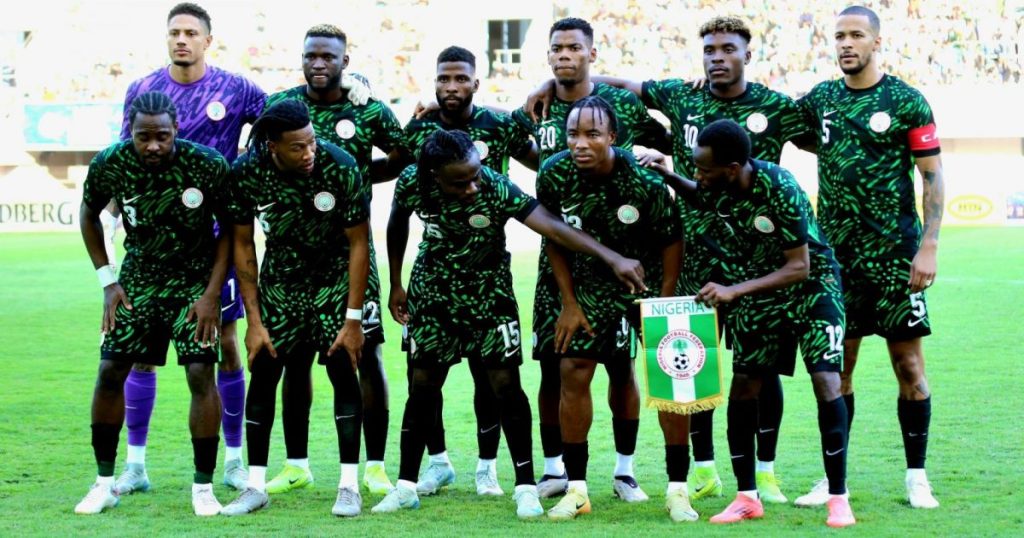Paragraph 1: Nigeria’s Ascent in FIFA Rankings
The Nigerian national football team, the Super Eagles, has experienced a slight but positive shift in the latest FIFA world rankings. Moving up one spot from their previous position of 44th, Nigeria now occupies the 43rd position globally. This incremental improvement reflects the team’s recent performance, particularly their victory against Rwanda in a World Cup qualifier. While a single-spot jump might appear modest, it signifies progress and offers a boost to the team’s morale as they continue their journey towards qualification for the 2026 World Cup, jointly hosted by the United States, Canada, and Mexico.
Paragraph 2: Global Football Hierarchy and Continental Standing
The top echelons of the FIFA rankings remain largely unchanged, with Argentina maintaining its dominance at the summit. Spain follows closely in second place, while France secures the third position. England holds steady at fourth, and Brazil rounds out the top five. Within the African continent, Nigeria’s 43rd global ranking translates to the sixth position within the Confederation of African Football (CAF). Morocco leads the African contingent, ranked 12th globally, followed by Senegal at 19th. Egypt and Algeria occupy the third and fourth spots in Africa, ranked 32nd and 36th globally, respectively. Reigning African champions, Côte d’Ivoire, experienced a significant jump, moving up five places to 41st globally and fifth within CAF.
Paragraph 3: Analyzing Nigeria’s Performance and Future Prospects
Nigeria’s recent victory against Rwanda played a crucial role in their upward movement in the rankings. This win demonstrates the team’s potential and provides a positive outlook for their upcoming World Cup qualifying matches. While the one-spot improvement may seem small, it represents a step in the right direction and underscores the team’s commitment to progress. The Super Eagles face the challenge of competing against strong African rivals in their quest for World Cup qualification. However, their current ranking and recent performance indicate their capacity to contend for a coveted spot in the prestigious tournament.
Paragraph 4: The Dynamics of FIFA Rankings and Their Significance
The FIFA rankings serve as a barometer of national team performance, reflecting the relative strengths and weaknesses of footballing nations worldwide. These rankings are based on a complex calculation system that considers various factors, including match results, opponent strength, and the importance of different competitions. While the rankings are not without their limitations, they provide a valuable framework for assessing team progress and predicting future performance. For Nigeria, the latest ranking provides a snapshot of their current standing and serves as motivation to continue their upward trajectory.
Paragraph 5: Implications for African Football and the Road to 2026
The shifting landscape of African football is evident in the latest FIFA rankings. Morocco’s ascendancy to the top spot in Africa underscores the nation’s growing footballing prowess. Senegal, Egypt, Algeria, and Côte d’Ivoire also maintain strong positions within the continental hierarchy. Nigeria’s positioning within this competitive landscape highlights the challenges and opportunities that lie ahead. The road to the 2026 World Cup will undoubtedly be arduous, demanding consistent performance and strategic execution.
Paragraph 6: Looking Ahead: The Next Ranking Update and Nigeria’s Ambitions
The next FIFA ranking update, scheduled for release on July 10th, will provide further insights into the evolving dynamics of international football. For Nigeria, this update will be eagerly anticipated as a measure of their ongoing progress. The Super Eagles harbor ambitions of not only qualifying for the 2026 World Cup but also making a significant impact on the global stage. Their current ranking serves as a foundation upon which to build, and their future performance will determine their ultimate success in achieving these ambitious goals.


